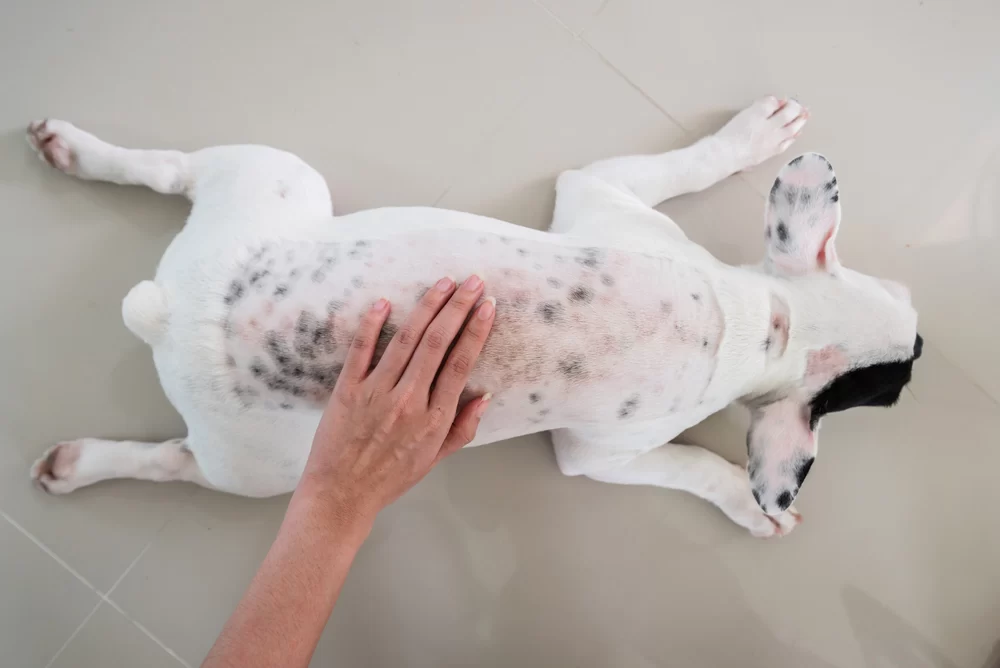Why Your Dog Is Scratching and How to Help: Causes and Solutions for Itchy Dogs
- Understanding Why Your Dog is Scratching
- Common Causes of Dog Scratching
- How to Help Your Dog Stop Scratching
- Effective Treatments for Itchy Dogs
- When to Visit the Veterinarian
- Preventing Future Scratching
Understanding Why Your Dog is Scratching
If your dog is constantly scratching, it can be frustrating for both you and your furry friend. Scratching is a natural behavior for dogs, but excessive scratching can be a sign of underlying health issues. Understanding why your dog is scratching and addressing the root cause is crucial for helping them feel better.
Scratching is a dog’s way of relieving itchiness, but it can lead to further discomfort if not properly treated. In some cases, it might be a temporary issue, while in others, it could signal a more serious health concern, such as allergies, infections, or parasites.
Common Causes of Dog Scratching
There are several reasons why your dog may be scratching. Identifying the cause is the first step in finding an effective solution. Here are some of the most common causes of dog scratching:
1. Fleas and Other Parasites
Fleas are one of the most common causes of itching in dogs. These tiny parasites bite and irritate your dog’s skin, causing discomfort. You may also notice flea dirt (tiny black specks) on your dog’s coat. Other parasites like ticks, mites, or lice can also lead to intense scratching.
2. Allergies
Dogs can be allergic to a variety of things, including food, pollen, dust mites, and certain grooming products. Allergic reactions can lead to itchy skin, which results in scratching. If you notice your dog scratching after a particular event, like a walk in the grass or eating a new type of food, allergies could be the culprit.
3. Dry Skin
In colder months, or in dry climates, your dog may develop dry, flaky skin, which can make them itch. Dry skin is often aggravated by a lack of moisture in the air, bathing your dog too frequently, or exposure to harsh chemicals. This can cause your dog to scratch in an attempt to soothe the irritation.
4. Skin Infections
Dogs can develop skin infections caused by bacteria, fungi, or yeast. These infections often cause intense itching and scratching. You may notice your dog’s skin becoming red, inflamed, or even developing scabs. If the scratching becomes severe, it’s essential to get veterinary care to address the infection.
5. Dermatitis
Dermatitis is an inflammation of the skin that can be caused by a variety of factors, including allergies, infections, or even irritants in the environment. Dogs with dermatitis often experience itching, redness, and swelling of the affected areas.
How to Help Your Dog Stop Scratching
Once you’ve identified the cause of your dog’s scratching, the next step is to help them find relief. Here are some ways to help your dog stop scratching:
1. Flea Control
If fleas are the cause of your dog’s itching, use a flea prevention treatment. These treatments, available in oral, topical, or collar form, can help eliminate fleas and prevent them from returning. Be sure to treat your dog’s bedding, home, and yard to eliminate fleas in all areas of your dog's environment.
2. Allergy Management
If your dog’s scratching is due to allergies, you may need to adjust their diet, avoid triggers, or use allergy medications as prescribed by your vet. Hypoallergenic dog food can help reduce allergic reactions, and limiting exposure to allergens like pollen or dust mites can provide relief.
3. Moisturize Your Dog’s Skin
If dry skin is the issue, using a moisturizing shampoo specifically designed for dogs can help hydrate their skin. You can also apply dog-safe skin creams or oils to relieve dryness and itching. Be sure not to bathe your dog too frequently, as it can strip natural oils from their skin.
4. Antifungal and Antibacterial Treatment
If your dog has a skin infection, your vet may recommend antifungal or antibacterial treatments to clear up the infection. Depending on the severity, these treatments can come in the form of topical ointments, oral medications, or special shampoos.
Effective Treatments for Itchy Dogs
For dogs with chronic itching, more advanced treatments may be needed. Here are some options to consider:
1. Steroid Medications
In some cases, steroids may be prescribed to reduce inflammation and control itching. While effective, steroids should only be used under a vet’s guidance as prolonged use can have side effects.
2. Allergy Shots
If your dog suffers from severe allergies, allergy shots (immunotherapy) may help. These shots gradually desensitize your dog’s immune system to allergens, providing long-term relief.
3. Omega-3 Fatty Acids
Omega-3 fatty acids can improve skin health and reduce inflammation. Adding omega-3 supplements to your dog’s diet can help alleviate itching caused by dry skin or allergies.
When to Visit the Veterinarian
If your dog’s scratching persists despite your efforts to help, or if you notice other symptoms like hair loss, sores, or a foul odor, it’s time to visit the veterinarian. A vet can perform a thorough examination, run tests, and recommend the most appropriate treatments to address your dog’s condition.
It’s important not to ignore severe itching, as it can lead to secondary infections or more serious skin conditions if left untreated. Your veterinarian will be able to provide guidance on the best course of action.
Preventing Future Scratching
Once your dog’s itching has been resolved, there are steps you can take to prevent it from happening again:
1. Regular Flea Prevention
Keep your dog on a regular flea prevention program to avoid future flea infestations.
2. Maintain a Healthy Diet
Ensure your dog is eating a well-balanced diet rich in essential nutrients to support skin health.
3. Regular Grooming
Regular grooming helps remove dirt, parasites, and allergens from your dog’s coat. It also allows you to spot any potential skin issues early on.
If your dog is constantly scratching, it's important to get to the bottom of the issue and find the right treatment. Hidden Brook Veterinary offers expert care to help with all types of dog skin problems, from flea infestations to allergic reactions. Contact us today for more advice and assistance in relieving your dog’s itching!












